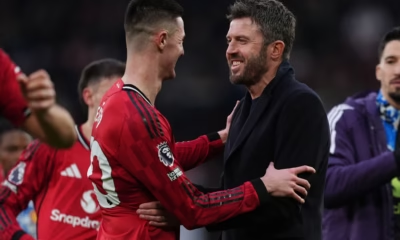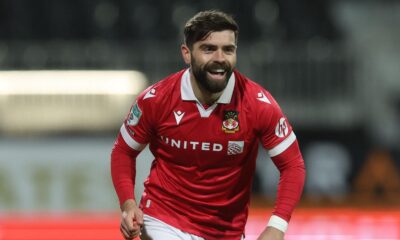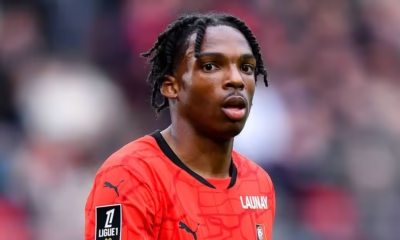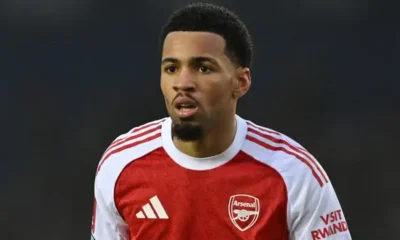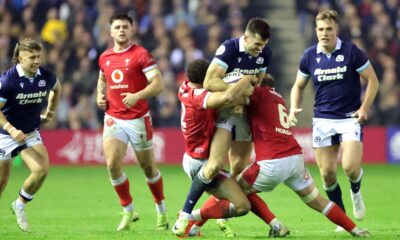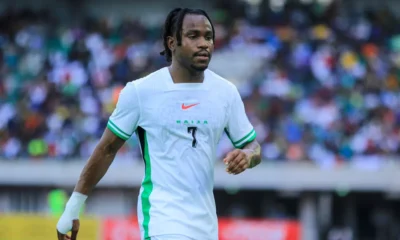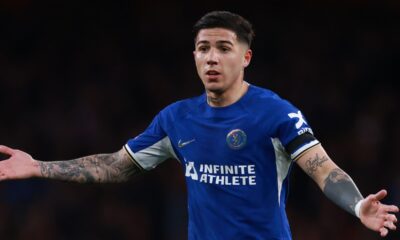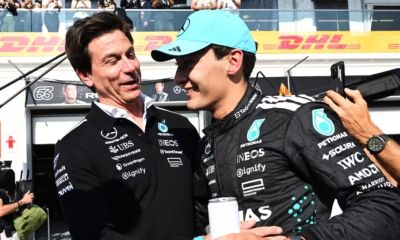News
UCL: Zaha called Man United spell ‘hell’, Ferguson ‘never spoke to him’
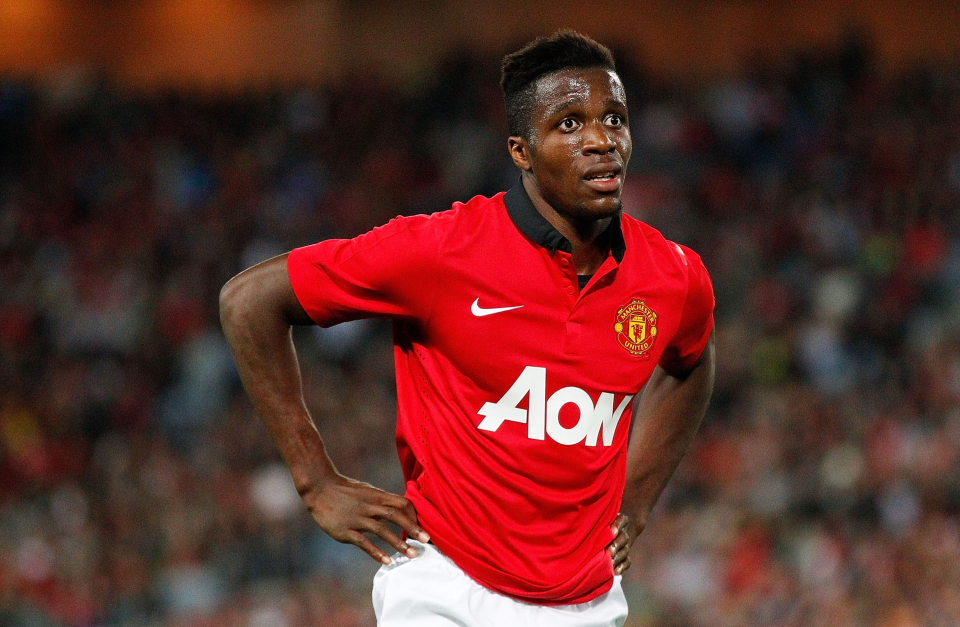
Wilfred Zaha signed for the Turkish champions this summer, leaving boyhood club Crystal Palace and bringing an end to his 11 years at the club that was split across two spells.
In between those two spells of being adored by the Selhurst Park faithful was two years at Man United.
This year marks 10 years since the Ivory Coast-born star made his £10m move to Old Trafford in the season the Red Devils won their last Premier League title.
Zaha, who had been tearing it up in the Championship with Palace in the first half of the 2012/13 season, had caught the eye of Peterborough United manager Darren Ferguson, the son of Man United’s legendary boss, Sir Alex Ferguson.
It wasn’t long before Palace had agreed to sell their superstar winger, who was just 20 at the time, to the Red Devils, with Zaha returning on loan for the rest of the season to help the Eagles win promotion to the Premier League.
But the buzz of promotion and a big move to Man United soon wore off for Zaha, who had no idea Ferguson, the man who wanted him, was leaving his new club that summer.
Zaha’s future Palace boss Neil Warnock told talkSPORT Breakfast last year: “I signed him [back] when I went to Crystal Palace. He’s always loved there. I would have liked to see him go to another top club.
“When he came back to me when I re-signed him. I remember talking to him in the chairman’s office.
But the following season didn’t go as planned for him
“I said to him, ‘Did you get on alright with Sir Alex?’ He said, ‘He never spoke to me once’.
“He was only a young lad and went there and didn’t get a lot of help.”
The arrival of David Moyes spelt trouble for Zaha, too.
With minimal game time and having to live alone in Manchester, the former England youth international has since explained just how tough it was for him, even describing his situation as ‘hell’.
Speaking to Shortlist, he said: “Obviously, getting to United isn’t easy, so not being given a chance is hard to take. I don’t regret anything because it made me stronger. I feel as though I can deal with anything now.
“I went through so much with United, with England. There were rumours that the reason I wasn’t playing [many games] for United was because I slept with [then manager] David Moyes’ daughter, and no one [at the club] attempted to clear that up.
“So I was fighting my demons by myself, these rumours that I knew weren’t true. I was dealing with this at 19, living in Manchester by myself, nowhere near anyone else, because the club had a hold over where I lived.
“They hadn’t given me a car, like every other player [had]. Nothing. I’m living in this hell by myself, away from my family, and I thought, “If this doesn’t make me stronger, what will?”
Zaha was played in pre-seasons, but barely played any competitive minutes for Man United
Zaha says he was never given a chance by Ferguson’s successors
“I explain this to my friends all the time,” he continued. ” When I was at United I had [money], but I was still so down and depressed. People think your life’s different because you’ve got money, you’ve got fame, so they don’t treat you the same.”
Former Man United defender and Zaha’s ex-teammate Rio Ferdinand has also revealed since that he felt he should’ve done more and put an arm round the new arrival.
Despite wanting to return to Palace on loan, Moyes shipped Zaha to ex-Man United star Ole Gunnar Solskjaer’s Cardiff. But Zaha’s career didn’t improve there, either, with him recording just one assist as the Bluebirds went down bottom of the league.
By the time he returned, Moyes had been replaced by Louis van Gaal, who, after telling Zaha he would have to adapt to play as a centre forward to keep his hopes of getting in the team alive, eventually informed Zaha that he should find another club.
“I was so relieved,” Zaha told the OnTheJudy podcast in 2020. “I was thinking, ‘Thank you for telling me straight and letting me restart my career’.”
In total, the Palace legend made just four appearances for Man United, scoring no goals and registering no assists in that time.
However, his return to Palace, first on loan and then permanently, saw his career come back to life. In total, he recorded a whopping 90 goals and 76 assists in 458 appearances for his boyhood team and is very much seen as one of the club’s greatest ever players.
He’s been back to Man United 15 times since, winning four of the clashes against them. However, he insists he holds no grudges over the club, despite the struggles he faced there.
Palace more than cemented his status as a Palace legend on his return
“Obviously Manchester United’s a team that I was at before, I played for them before a long, long time ago,” Zaha said at Old Trafford. “Ten years forward, I’m 30 years old. I feel like I’ve matured in my game, I am at a big club, Galatasaray.
“I think with the help of the manager or the team we have, we have a lot of talent, a lot of experience, so, yeah, I think we’re ready for the game tomorrow.
“Obviously they’ve got a good team but at the same time we’ve got players who can hurt them as well, so me personally I’m looking forward to the game.”
Asked if what happened to him at United bothers him, Zaha said: “I’ll be honest, when you look at my face do you think I am bothered at all? No.
“Realistically I think I went through a phase where you either build from it or you die out from it. And me personally, I was never going to die out from it.
“It built my character for me to just continue my career because I was determined to not let my career die out because I went somewhere and it didn’t work out. I was just determined to reach where I wanted to reach and I am here today.”
Zaha opened his account for Galatasaray over the weekend, scoring in the 2-1 win over Ankaragucu. His goal was the epitome of what Sir Alex was likely to have been sold by all those years ago when he made Zaha his last ever signing.

-

 News2 days ago
News2 days agoMichael Carrick Explains Mason Mount Absence In Manchester United Win Over Fulham
-

 Uncategorized1 day ago
Uncategorized1 day agoElliot Lee Takes Subtle Swipe At Phil Parkinson After Wrexham Exit
-

 Premier League2 days ago
Premier League2 days agoLiverpool Stun Chelsea With £60m Jeremy Jacquet Transfer Twist
-

 Premier League2 days ago
Premier League2 days agoCan Arsenal Recall Ethan Nwaneri? Why the Gunners Can’t Bring Him Back After Merino Injury
-

 More Sports1 day ago
More Sports1 day agoSix Nations Shake-Up: Why The New Six-Week Format Could Change Everything
-

 Local News2 days ago
Local News2 days ago“Very, Very Happy”: Ademola Lookman Speaks As Atletico Madrid Player
-

 News1 day ago
News1 day agoEnzo Fernandez Sends Emotional Message Of Support To Chelsea Starlet Estevao
-

 More Sports2 days ago
More Sports2 days agoGeorge Russell Eyes Epic 2026 Title Showdown With Max Verstappen As Mercedes Launch New Era









